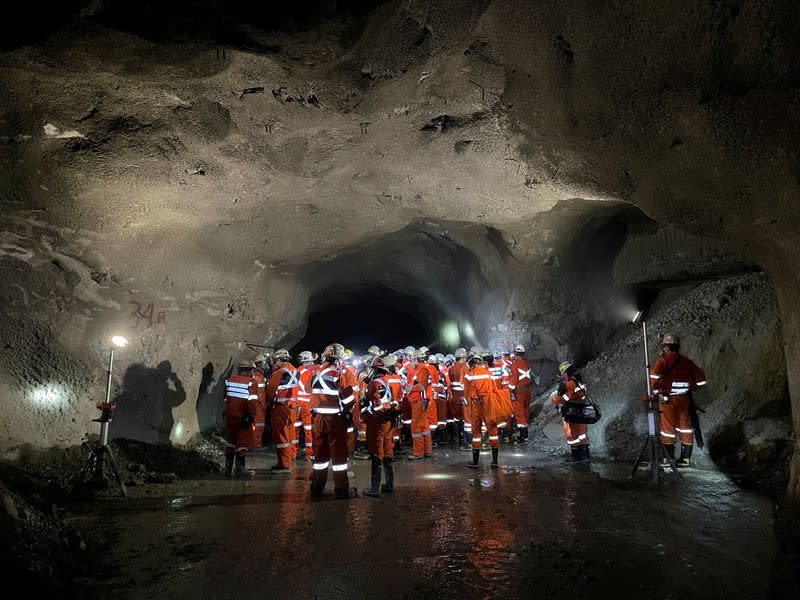Chile mining royalty bill progresses after committee approves

SANTIAGO (Reuters) - A Chilean congressional committee approved on Wednesday a controversial mining royalty bill, putting it a step closer to final approval as part of the government's sweeping tax reform.
The proposal, strongly criticized by the industry, was presented in the middle of 2022 by the government to increase royalties on copper sales in Chile, the world's largest producer of the metal.
Following approval Wednesday by the mining and energy commission, the bill passes to a Treasury commission, where it will again be reviewed and need approval before it goes to a final vote.
Nonetheless, there continues to be disagreement over some aspects of the bill.
"The tax rate is a formula that has not convinced all of us," said Senator Loreto Carvajal, president of the mining commission, during the session. "The issue of our future competitiveness in relation to nearby countries and others is still pending," he added.
The government modified the bill in October, proposing a fixed sales royalty of 1% for large miners and removing provisions that linked payments to copper prices. The mining industry welcomed the change, but said the tax burden remained too high.
(Reporting by Natalia Ramos, Writing by Isabel Woodford; Editing by Cynthia Osterman)

 Yahoo Finance
Yahoo Finance 